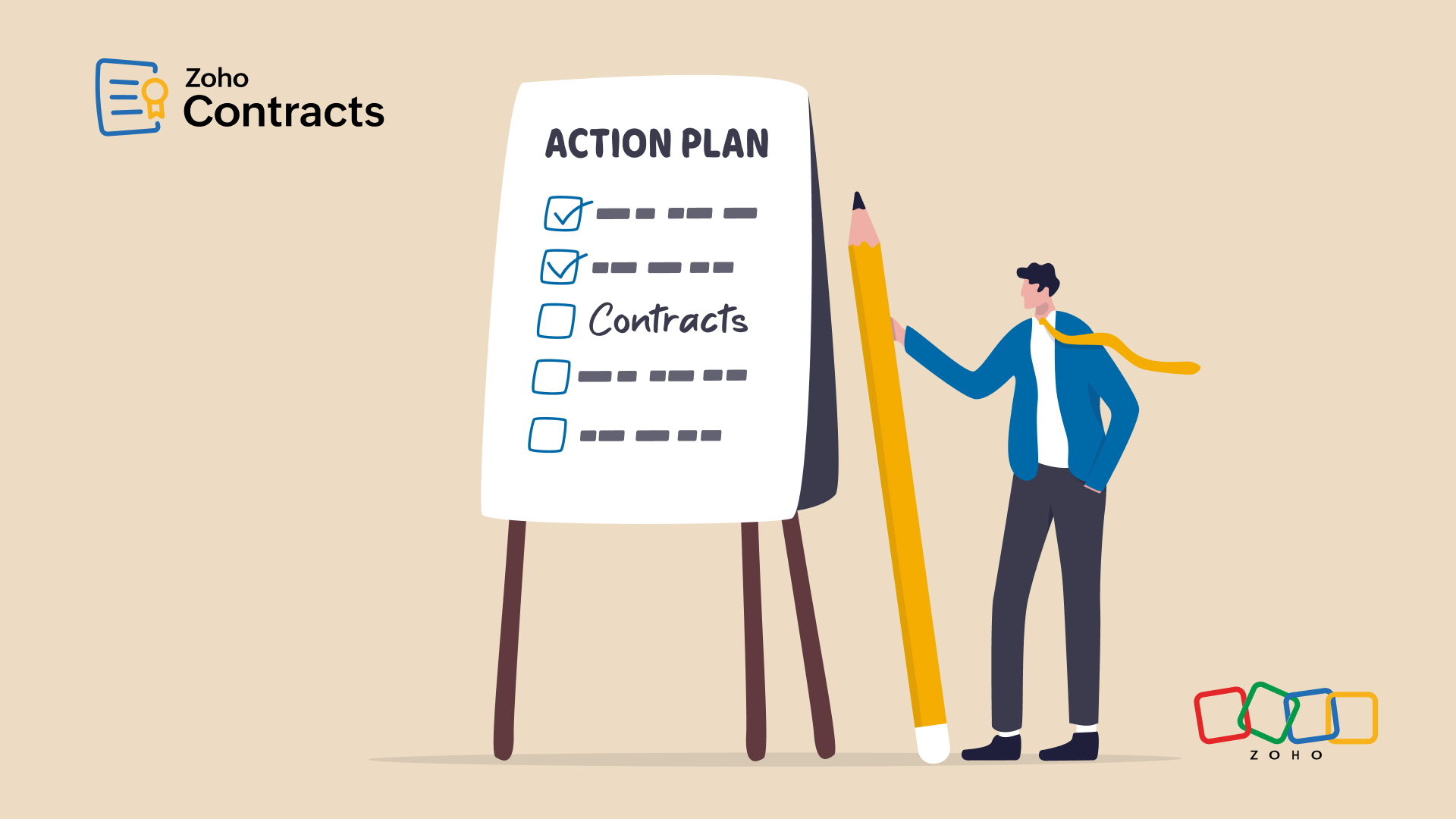Is your 2025 sales strategy ready? Here's why you can't ignore contract management
- Last Updated : March 19, 2025
- 590 Views
- 3 Min Read

It's that time of year when every organization revisits its sales strategies. They explore tools that have the potential to transform operations and unlock new opportunities. While AI is the buzzword dominating conversations right now, its true potential is often realized only after addressing the foundational gaps in the sales processes.
One such often-overlooked but crucial gap is contract management—a critical step in the sales journey with immense potential to streamline operations and drive faster revenue recognition. In this blog post, we'll explore how mastering contract management can significantly transform your sales operations.
Why contract management is critical in sales cycles
Contracts are fundamental in any sales cycle. They finalize business deals and legally bind all parties involved. Structured workflows streamline many aspects of sales processes, but managing contracts often requires individuals to switch between multiple applications.
When managing sales contracts, a lack of transparency and poor communication between sales and other teams leads to delays, missed opportunities, and complicated performance tracking. Inefficiencies in the sales contract management process can also directly impact revenue growth.
Key challenges with traditional approaches to contract management
Poor contract accessibility because of disorganized archives and libraries
Increased risk of errors due to manual data entry and exchange
Limited visibility into current contract status and progress
Fragmented collaboration between sales, legal, and other teams involved
Manual and disconnected review processes
Reduced sales productivity
Gartner expects 80% of B2B sales interactions between suppliers and buyers to occur in digital channels by 2025.
As more businesses lean into digital-first interactions and regulatory demands grow, streamlining sales contract management is the next natural progression. Imagine creating, reviewing, and finalizing contracts without leaving the CRM and disrupting the flow of your sales process. Integrating a contract lifecycle management (CLM) tool with your CRM makes this possible. It promotes a holistic sales contract lifecycle experience for all stakeholders.
Organizations can transform a time-consuming contract management process into a seamless experience by integrating a CLM tool into their CRM. This enables them to focus more on selling and instead of drowning in paperwork and follow-ups.
Here's how your sales contract lifecycle looks with a CRM-CLM integration
Contract requests: Salespeople can initiate new contract requests directly from the CRM.
Contract details: Deal details in the CRM are automatically mapped into the CLM tool, auto-populating related fields in a contract.
Contract assignment: Contracts are automatically assigned to designated contract owners from legal or other teams based on pre-defined assignment rules.
Contract copy: A contract copy is also available within the CRM, providing sales teams with easy access.
Contract status: Salespeople can track contract status directly from the CRM.
Contract progress: Based on the contract stage in CRM, salespeople can initiate approvals, negotiations, and signatures.
Contract signature: Built-in eSignature capabilities in CLM systems allow contracts to be signed and secured in minutes.
Contract post-execution: Post-execution management requests—such as amendments, extensions, and renewals—can also be initiated directly from the CRM.
The benefits of streamlining sales contract management
Minimized risks
Automated data mapping from CRM to CLM reduces errors and inconsistencies.
A central repository for all of your sales contracts enhances visibility and accessibility.
Pre-approved contract templates and standard approval workflows for critical contracts reduces risks.
Accelerated sales cycles
A self-service model for contract requests and creation empowers sales teams to generate contracts quickly without dependencies.
Real-time tracking of contract status within the CRM eliminates follow-ups and ensures faster contract executions.
Seamless collaboration with stakeholders reduces delays.
Improved compliance
Efficiently tracking and managing obligations such as payments, renewals, and deliverables helps adhere to commitments.
Automated reminders and alerts for critical contract milestones help avoid missed deadlines.
Conducting granular audits helps ensure compliance with internal and regional regulations.
Improved performance
Actionable insights from sales agreements help businesses make informed decisions and optimize the sales process.
A streamlined contract management process allows businesses to handle higher volumes of contracts.
Read our blog to dive deep into how modern businesses address their sales contract management challenges.
Wrapping up
At Zoho, we offer a comprehensive CLM solution, Zoho Contracts, that can improve efficiency across all aspects of contract management. Integrating Zoho Contracts with Zoho CRM allows you to automate contract requests and manage the entire contract lifecycle directly within Zoho CRM.
Our help guide provides detailed step-by-step instructions for setting up your Zoho Contracts and Zoho CRM integration. If you have any questions or need support, please email us at support@zohocontracts.com.
By prioritizing sales contract management as part of your growth strategy, you're setting your team up for faster sales and sustainable success in the coming year. Here's to smoother sales cycles, stronger customer relationships, and a prosperous 2025!


